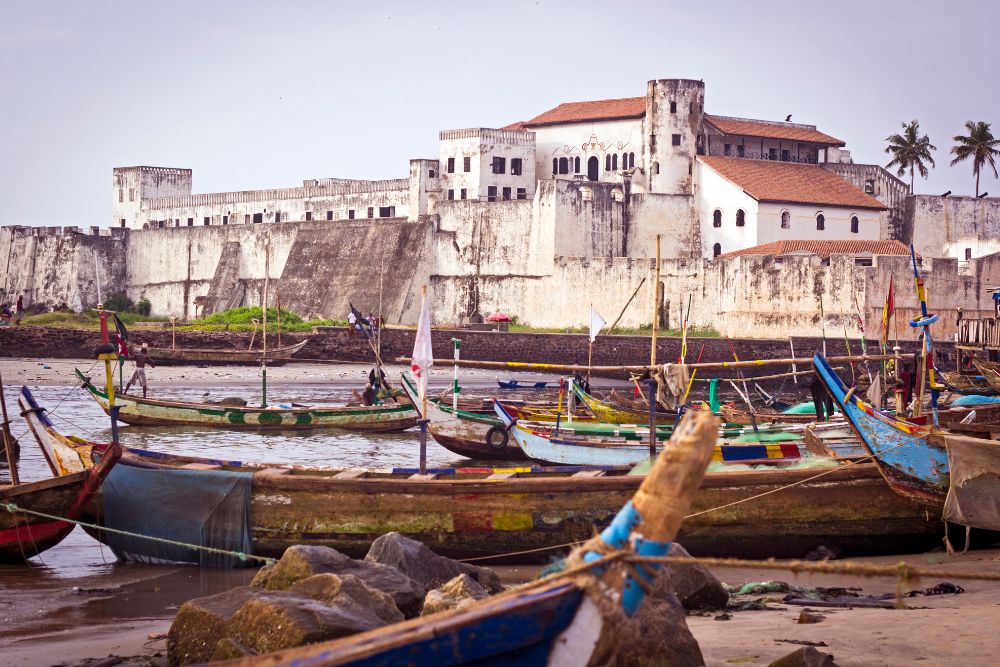Since learning about Kwame Nkrumah and the struggle for independence in Ghana, I’ve always wanted to visit the gold-laden country to experience the taste of freedom rumored to still hover over the country!
If you have it on your list of favorite African countries to visit soon, I invite you to join me on this exploration of Ghana facts.
1. Ghana Was Africa’s First Self-governing Country
Ghana was officially under British colonial rule since 1874. It was the first African country to gain independence and self-governance on 6th March 1957, under the leadership of Kwame Nkrumah.
The Portuguese arrived on the coast of Ghana in 1471 and loved the country for its rich deposits of gold between rivers Volta and Ankobra. The space colonized by the Portuguese was called the Portuguese Gold Coast.
The Dutch also reigned in Ghana for 274 years between 1598 and 1872, having defeated the Portuguese in the Dutch-Portuguese War and incorporated the Portuguese colony into the Dutch territory in 1642.
2. Ghana’s Name Borrows From The Ghana Empire
Ghana’s name is from the Ghana Empire of the Soninke people. In the Soninke language, the name Ghana means “Warrior King”.
European explorers and traders who came to Ghana aptly called it the Gold Coast for its vast supplies of gold.
3. Home Of Rich Clothing Culture
Many African countries are known for their unique traditional fabrics and clothing styles, such as the Agbada in Nigeria, Kitenge in East and West Africa, and Ankara in West Africa.
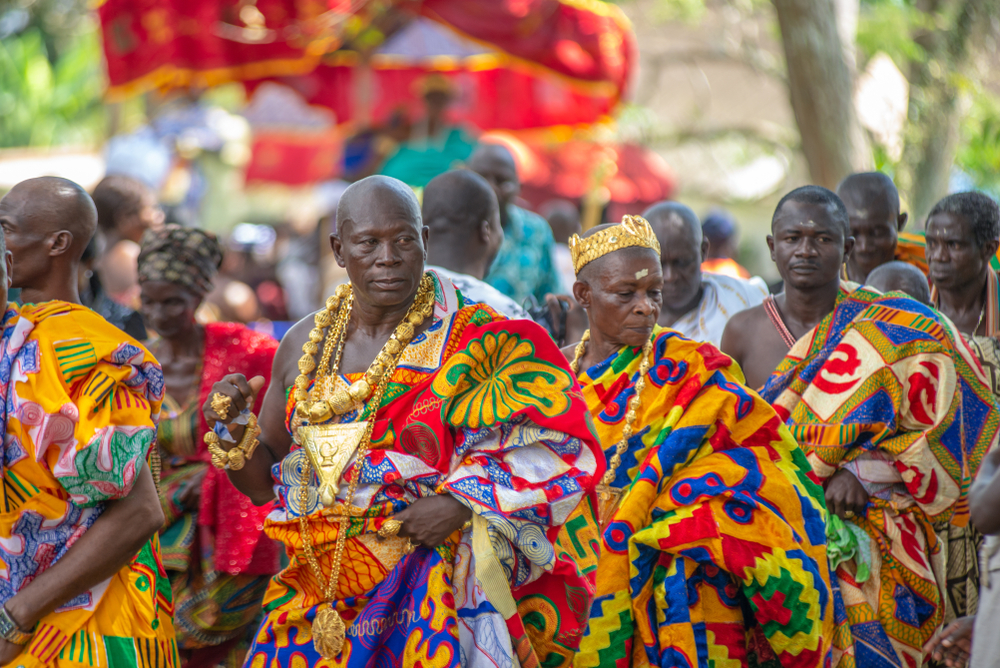
In Ghana, the national costume is made from the Kente cloth, a handwoven fabric mainly identified with the populous Akan ethnic group.
The country’s official language is English, inherited from British colonialists. The Akan language remains the most widely spoken local language, with an estimated 20 million speakers in 2022.
4. Ghana’s Home To Over Seventy Ethnic Groups
With over 70 ethnic groups, Ghana is one of Africa’s most ethnically diverse countries. The main ethnic groups include the Akan, Mole-Dagbon, Ewe, Ga-Dangme, Gurma, Guan, Grusi, Kusaasi, and Bikpakpaam.
5. Many Ghanaians Consider Lake Bosumtwi Sacred
Lake Bosumtwi is a natural lake in a meteorite-caused crater with a diameter spanning 10.5 kilometers (6.5 miles). The waters of the lake come only from rainfall as it has no inlet. It has no outlet, either.
Many Ghanaians consider the lake sacred because of its autonomous nature.
6. Behold, Ghanian Vocation-inspired Coffins
The Ga people of Ghana believe in life after death, which explains why they promote the custom of making unique coffins for prominent people based on their professions or characters.
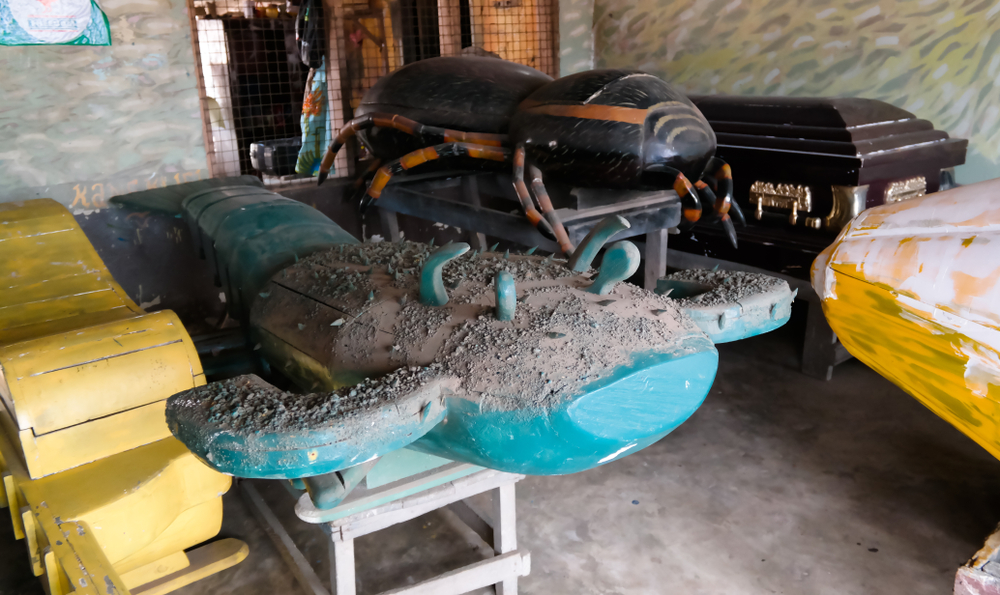
For example, a prominent cocoa farmer may have their coffin made in the shape of a cocoa bean, while a brave man or a leader may have a coffin modeled on the body of a lion.
The coffins aren’t just for burying the dead—they are intentionally made with elaborate artistry to make a good lasting impression once the departed person reaches the second side of their life!
7. World Record For Running 100 Meters Backwards
In 1991, Ferdie Ato Adoboe, a Ghanaian man, set a world record for running 100 meters backward in just 13.6 seconds!
8. Ghanian Traditional Dishes, Made With Love
Ghanaian cuisine is unique and deeply rooted in the history and culture of the people. The country’s cuisine features starchy staples like yams, plantains, cassava, and corn dough, which are usually accompanied by a soup or stew with beans or meat.
The people of Ghana love cooking and each meal is made with love. The most common traditional foods include banku, fufu, Jolof rice, yam pottage, waakye, garri, kelewele, and roasted plantain.
9. Meet GhanaSat-1
Well, you probably won’t actually get to meet the GhanaSat-1, but it’s interesting to learn about it as Ghana’s first-ever nanosatellite to be launched into space.
The satellite was launched from the International Space Station after a successful development by Koforidua-based All Nations University students.
10. Cape Coast Is One of Ghana’s Most Historic Cities
While Accra is the capital city of Ghana, it may not have a history as rich as that of the Cape Coast, an old Ghanaian coastal town on the headland of the Gulf of Guinea.
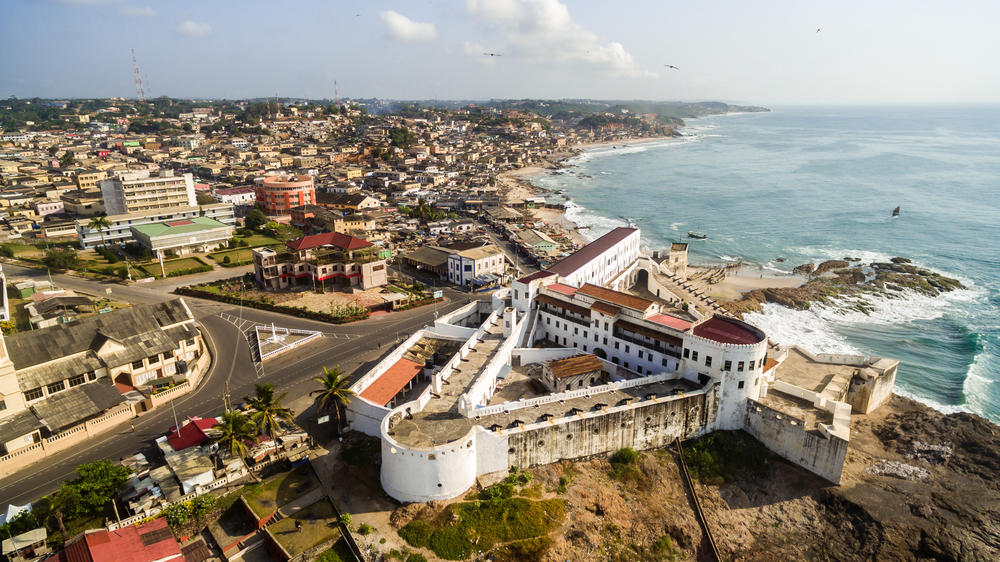
The city has a rich history dating back to the colonial times of the Portuguese, who established a trading fort there before the Swedes built the famous Cape Coast Castle in the mid-17th century, which has since been listed as a UNESCO World Heritage Site.
11. 26th Smallest Country In Africa
Ghana ranks number twenty-six on the list of the smallest countries in Africa at only 238,533 square kilometers (92,098 square miles). The country in West Africa on the Gulf of Guinea is bordered by Cote D’Ivoire, Burkina Faso, Togo, and the Atlantic Ocean.
12. Africa’s Largest Producer Of Gold
True to its former name, the Gold Coast, the Republic of Ghana is the largest producer of gold in Africa and the sixth largest globally. The country produced 117.6 tonnes of gold in 2021, ahead of other gold-rich countries like South Africa, Sudan, and Mali.
13. Africa’s Only Canopy Walkway
The Kakum National Park forest, the first national park in Ghana-born of a local initiative rather than the country’s wildlife agency, is home to the only canopy walkway in Africa.
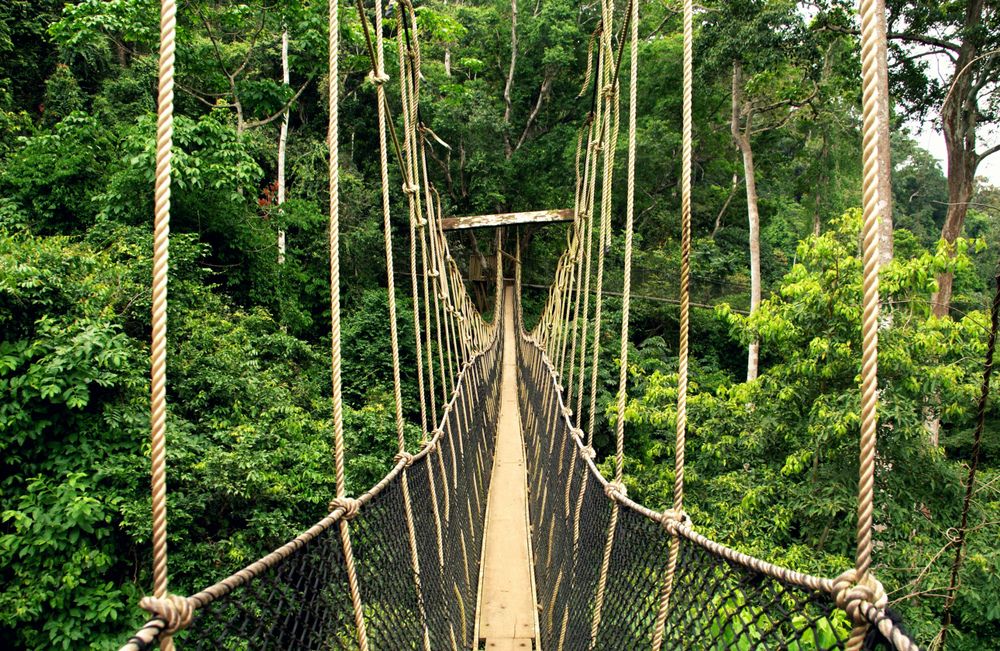
The 350-meter-long bridge was built in 1995 and connects seven unharmed treetops to provide locals and tourists access to the vast canopy of the rainforest.
14. Ghana’s Home To The World’s Largest Artificial Reservoir
Positioned behind the Akosombo Dam, Lake Volta of Ghana is the largest man-made lake in the world by surface area.
The lake is about 400 kilometers or 250 miles long and encompasses 3.6% of the area of Ghana at 8,502 square kilometers or 3,283 square miles.
15. 33 Million People And Counting
As of 2022, the population of Ghana is 33,475,870. Roughly 73% identify as Christians, while the rest are Muslim or traditional indigenous religion practitioners.
The country’s population has been increasing over the years and is projected to keep growing, even though the gold-rich Sub-Saharan Africa country has a notably small area.
16. Ghana Is Home To One Of The Strongest Sub-Saharan Africa Kingdoms
The Ashanti Empire of the Asante or Ashanti people was established in the early 18th century around Kumasi and lasted until 1901.
Kumasi grew to be an important landmark in Ghana as the country’s second-largest city after Accra. It is still identified as the capital location of the Asante region.

